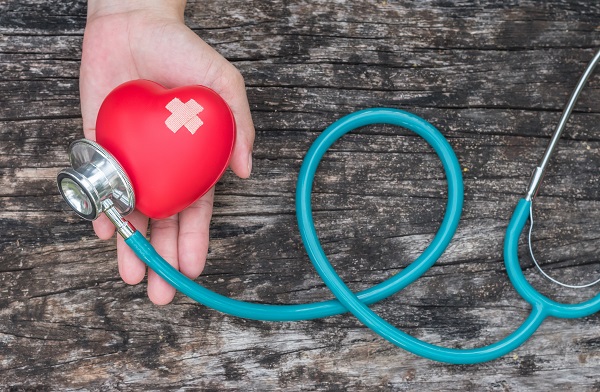How are Cholesterol and Heart Health Related?

Cholesterol is a compound that is found in body tissues that helps to insulate nerves, produce hormones and build new cells. Cholesterol is usually made by your liver, but it can also get in your body through food like meat and eggs. If you have a high level of cholesterol, you are at risk of heart disease.
Cholesterol and heart health
When you have too much cholesterol in your blood, it starts to build up in the walls of your arteries, leading to heart disease. Due to the high level of cholesterol in your blood, your arteries become narrowed, which limits the flow of blood to your heart muscles.
Since blood carries oxygen to your heart, the lack of blood flow and oxygen to the heart may lead to chest pain. If the blood supply to your heart is completely blocked off, you will end up having a heart attack.
Types of cholesterol
There are two forms of cholesterol. High-density lipoprotein (HDL) is known as the good cholesterol, while Low-density lipoprotein (LDL) is known as the bad form of cholesterol. HDL helps to remove cholesterol from the blood while LDL is the artery-clogging form of cholesterol that leads to heart disease.
According to research, high levels of triglycerides, another form of fat in your bloodstream, may also lead to heart disease.
Can you tell if you have high cholesterol?
Unlike most conditions in your body, there are no symptoms associated with high cholesterol. This is one of the reasons why many people do not know that their cholesterol level is too high. Since there are no symptoms, it is up to you to ask your physician about your cholesterol numbers and come up with a plan to lower them. By lowering your cholesterol levels, you reduce your risk of developing heart disease.
What is the ideal level of cholesterol in the body?
Checking your cholesterol level is done with a blood test known as a lipoprotein profile. It takes note of:
- LDL
- HDL
- Total cholesterol level
- Triglycerides
When you receive your test results, your physician will explain what the numbers mean to you. The rule of thumb with a cholesterol test is that your total cholesterol should be under 200. If your cholesterol level is between 200 and 239, you are a borderline case. If it is above 240, your cholesterol level is too high.
When it comes to LDL, the optimal result is less than 100. If it is between 100 and 129, you are still near optimal. If it is above 160, it is too high. Your HDL, which reduces your risk of heart disease, should be over 60. If it is lower than 40, you are at high risk for developing heart disease.
Factors that influence cholesterol levels
Your diet
Carbohydrates, saturated fat, trans fat and the cholesterol in the food that you eat can increase your cholesterol levels. Try to limit your intake of these foods to keep your heart healthy.
Exercise
Staying active. Exercising regularly can help raise your HDL cholesterol and lower your LDL cholesterol. It also helps strengthen your cardiovascular muscles.
Weight
Being overweight increases your risk of developing heart disease and is linked to high cholesterol levels. Losing weight will also bring other benefits with it besides reducing your cholesterol levels. Your joints will be under less stress, you will have less fat and you decrease your chances of developing a condition like diabetes.
Treatment
You can treat your cholesterol and reduce the risk of heart disease by eating a healthy diet, exercising regularly, taking medication to lower your cholesterol and by maintaining a healthy weight. Your doctor can develop a personalized plan to help you take control of your health.
When did you last see the doctor?
Since there are no symptoms associated with high cholesterol levels, you should make sure you ask your physician for a cholesterol test during your next visit. If you do not have a doctor, please call our office to schedule a visit.
Request an appointment here: https://boyntonbeach.floridapremiercardio.com or call Florida Premier Cardiology at (561) 229-1411 for an appointment in our Boynton Beach office.
Check out what others are saying about our services on Yelp: Read our Yelp reviews.
Recent Posts
Heart disease treatment encompasses a range of interventions, from lifestyle changes and medications to surgical interventions. Individuals can manage their condition and improve their quality of life by working with a cardiologist. Successful heart disease treatment starts with the patient having the information they need to make informed decisions about their health.Also known as cardiovascular…
A heart specialist is a doctor specializing in diagnosing and treating cardiovascular conditions. Patients may be referred to one of these doctors for several reasons, from diagnosing a heart health issue to getting cleared for surgery. However, seeing a heart specialist is even more crucial for those either experiencing the signs of heart disease or…
Cardiologists perform angioplasty to open blocked arteries, specifically those caused by coronary disease. This minimally invasive alternative to open heart surgery can restore proper blood flow to the heart and often reverse the fast track to a heart attack. However, learning when one is necessary is crucial for treatment success.Coronary artery disease (CAD) is a…
The heart's valves must remain healthy and upright to promote an overall healthy heart and cardiovascular system. However, sometimes, they can weaken. Fortunately, various valvular disease treatments are available to address damage. Whether valves begin to narrow or leak, timely treatment is necessary.There are two main types of heart valve disease: regurgitation and stenosis. The…


